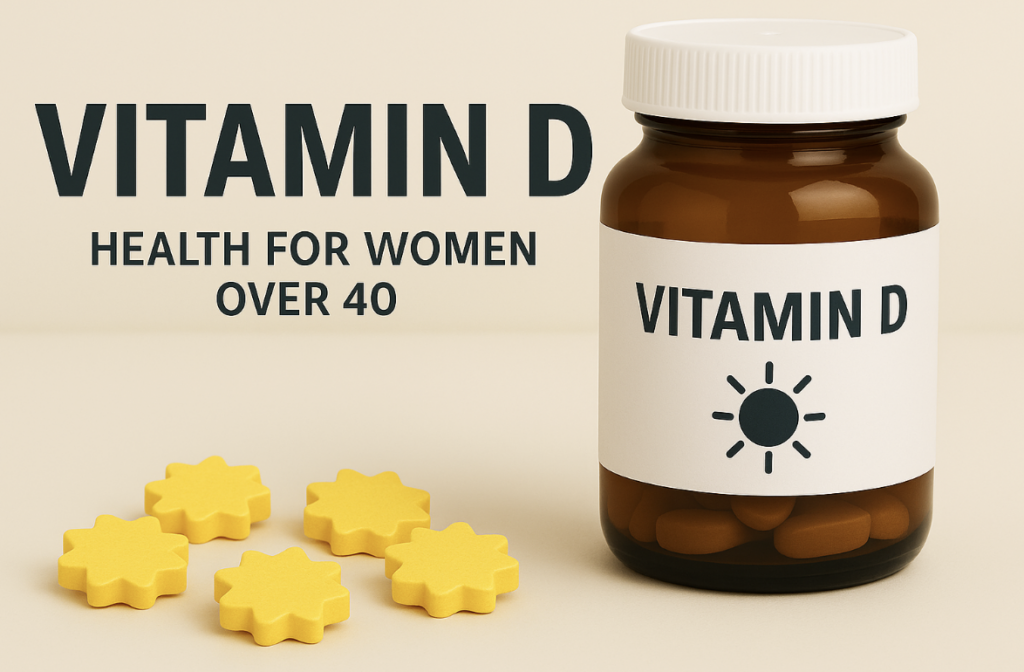Vitamin D is often called the “sunshine vitamin,” but for women over 40, it’s far more than that. It’s critical for maintaining strong bones, a healthy immune system, and stable mood—yet nearly half of all adults are deficient. In this post, we’ll explore why vitamin D is essential during midlife, how to spot a deficiency, and how to get enough through sunlight, food, or supplements.
🦴 1. Why Vitamin D Matters After 40
- Aids calcium absorption, which supports bone density and reduces fracture risk
- Regulates immune function, helping to fight off infections
- Supports mood stability and may reduce risk of depression
- May help balance hormones and reduce inflammation
💡 Postmenopausal women are at higher risk of bone loss, making vitamin D even more essential.
⚠️ 2. Signs You May Be Deficient
- Frequent illness or colds
- Bone or back pain
- Fatigue or low mood
- Muscle weakness or cramps
💡 People who avoid the sun, have darker skin, or live in northern climates are more likely to be deficient.
💊 3. Best Vitamin D Supplement Options
- Vitamin D3 (cholecalciferol): The most bioavailable and effective form
- D3 + K2 blends: Help direct calcium to the bones instead of soft tissues
- Vegan D3 drops: Derived from lichen and great for plant-based diets
💡 Most women benefit from 1000–2000 IU daily; check with your doctor for blood testing and dosage guidance.
🌞 4. How to Boost Vitamin D Levels Naturally
- Get 10–30 minutes of midday sunlight, several times a week
- Eat D-rich foods like salmon, sardines, egg yolks, and fortified dairy or cereals
- Use supplements during winter or when sun exposure is limited
🛑 Too much vitamin D can lead to toxicity. Avoid high doses unless prescribed.
🥗 5. Foods Rich in Vitamin D
- Fatty fish (salmon, tuna, sardines)
- Egg yolks and fortified dairy or orange juice
- Mushrooms exposed to UV light
- Fortified cereals or plant-based milks
💡 Since few foods naturally contain vitamin D, supplements are often necessary to meet daily needs.
Vitamin D is a cornerstone nutrient for women over 40, playing a role in bone health, immune defense, mood regulation, and hormonal balance. Ensuring adequate levels through sun exposure, food, or supplementation can help you stay strong, vibrant, and resilient as you age.
Vitamin B12 for Women Over 40: Energy, Mood & Brain Health Support
NIH Fact Sheet: Vitamin D
